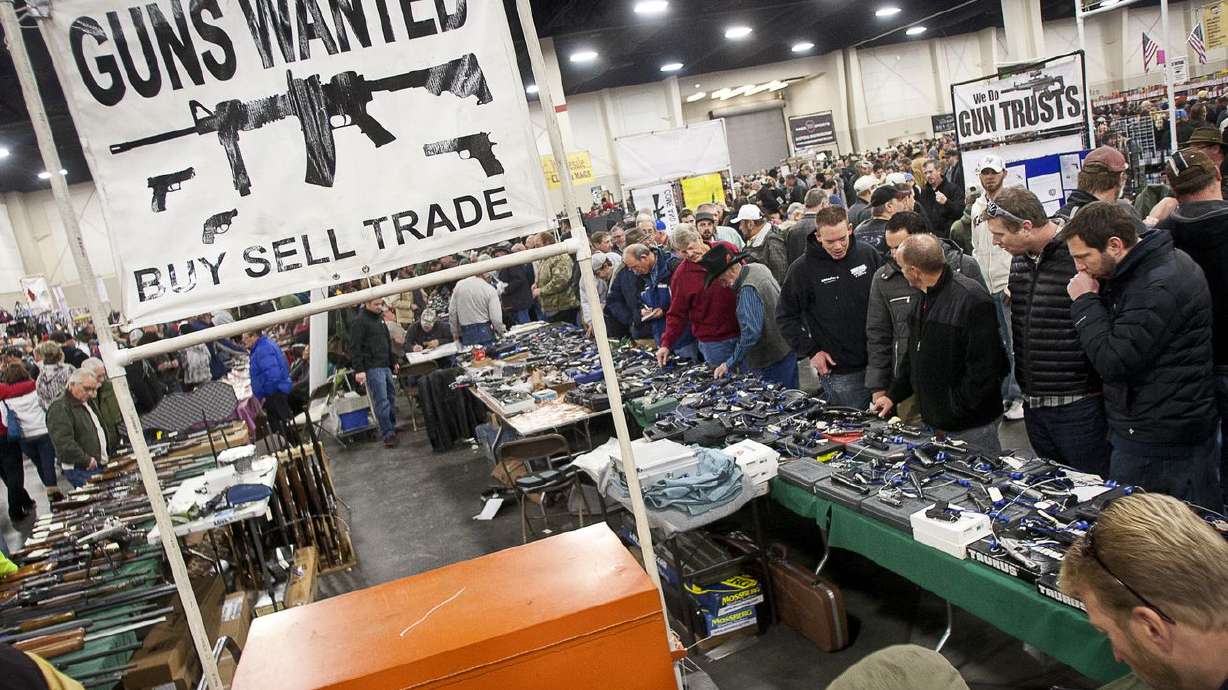Estimated read time: 4-5 minutes
This archived news story is available only for your personal, non-commercial use. Information in the story may be outdated or superseded by additional information. Reading or replaying the story in its archived form does not constitute a republication of the story.
SALT LAKE CITY — The House claimed dominion over all gun laws within Utah, voting to give the state power to override local laws and even disregard federal regulations.
HB76 creates the Firearms Preemption Enforcement Act and effectively gives the Legislature the final say on all gun laws in the state, prohibiting cities or counties from creating their own rules. It also states that Utah will not enforce certain federal firearm regulations.
"Any regulation, in the state of Utah, as it relates to firearms, is the prerogative of the state," bill sponsor Rep. Cory Maloy, R-Lehi, told the House Judiciary Committee Monday. Maloy ran similar legislation, HB271, last year but it died in the Senate on the last day of the session.
HB76 passed the House 56-16 Tuesday with a vote mostly along party lines. Democratic Rep. Ashlee Matthews, of West Jordan, was the only one to break from her party and voted in favor of the bill.
State authority vs. federal authority
House Minority Leader Brian King, D-Salt Lake City, was worried about the legal repercussions of Utah ignoring federal firearms legislation.
"It's a well-settled area of constitutional law: Congress passes a law that regulates gun use, or ownership or purpose. We simply do not have the power to preempt that or disregard that," King said. "I do think inclusion of this language … creates real problems and likely litigation and the cost to taxpayers associated with that."
But Maloy says there is precedent for disregarding federal rules.
"We feel like it's going to be very similar to our marijuana laws," Maloy said. "We've really relaxed those laws here in Utah to provide for medical marijuana. But most of the actions that take place in that new industry, here in Utah, are against federal law, and that the federal agencies pretty much don't enforce those."
The bill would have the Utah attorney general investigate any violations by cities or towns. Maloy said this allows Utahns a recourse if they believe their Second Amendment rights have been infringed upon.
Related:
"It strikes a blow for federalism and states rights, which I like," said Rep. Merrill Nelson, R-Grantsville. "It's novel, it's untried, it's untested and (preemptive laws) ultimately fall when challenged in a federal court under the U.S. Supremacy Clause."
Clark Aposhian, chairman of the Utah Shooting Sports Council, said in Monday's committee hearing "there's no confusion. There's no ambiguity when reading these as to the intent the Legislature has, and that they want to jealously guard their ability to be preeminent ... regulating all laws regarding firearms."
State authority vs. local authority
King worries HB76 will remove protections that municipalities and counties have worked to enhance public safety.
He referred to Salt Lake County Mayor Jenny Wilson's order last year that required background checks be performed with private firearm sales at gun shows held in county-owned convention centers, such as the Mountain America Expo Center in Sandy.
Wilson on Monday spoke out against the bill to the committee, referring to a Supreme Court case and Justice Antonin Scalia's opinion on the Second Amendment, summing it up by saying "local governments indeed can enact local reasonable controls."
But not all at the county level agree with the mayor.
Salt Lake County Councilwoman Laurie Stringham told the committee the discussion about gun rights becomes confusing at the local level and belongs with state authorities.
Maloy said that if the background checks on private sales, such as the one Wilson enforces, were passed by the state Legislature, then they'd be protected by Utah's preemptive laws.
"This does not change our current background checks when you buy firearms in retail, that will stay in place," said Maloy.
And the state lawmaker denied the bill was aimed at Salt Lake County's actions last year.
"I have not crafted this bill for Salt Lake County, but this was mostly worded before (they) passed that ordinance, " Maloy said. "The fact of the manner is, they are flat out breaking the law."
The bill will move on to the Senate for debate.









